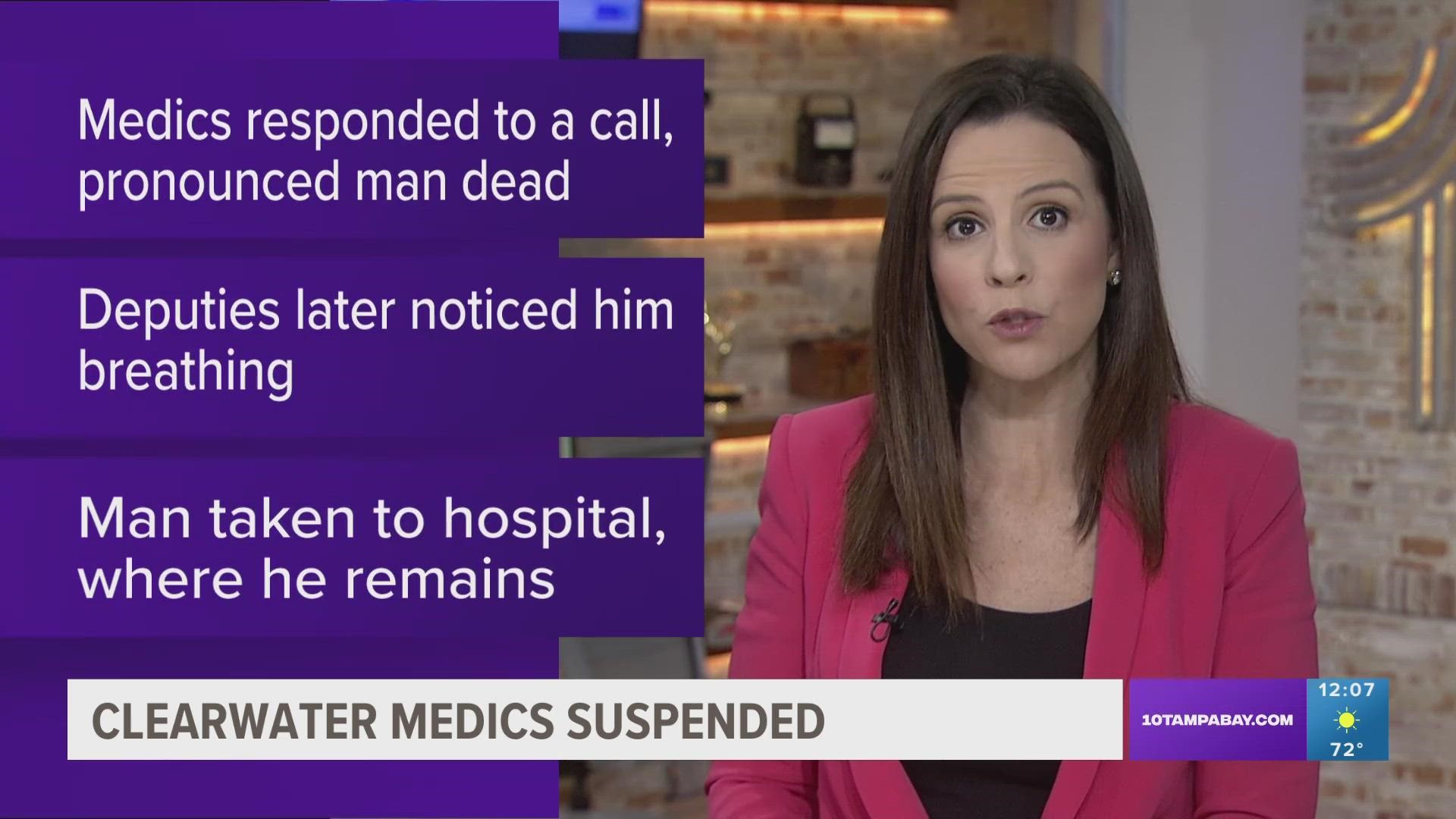CLEARWATER, Fla. — Two Clearwater Fire and Rescue medics were placed on administrative duty and cannot provide any patient care after pronouncing a man dead who was later found to be breathing, according to a news release.
The two medics, from Station 47, responded to a cardiac arrest call around 10 a.m. on Feb. 15. at a private residence in unincorporated Pinellas County.
Once at the home, the two medics pronounced a 65-year-old man dead, according to preliminary information.
"After the arrival of Pinellas County Sheriff’s Office deputies, the two fire medics left the scene," the news release explained. "A PCSO deputy noticed the patient was breathing and requested medical crews to return to the scene."
Less than 30 minutes later, Largo Fire Rescue crews were called out to the home and began patient care, which resulted in the 65-year-old being taken to a nearby hospital, where he remains today, according to the statement.
A spokesperson for the city of Clearwater said both medics were placed on administrative duty and were clinically suspended by Pinellas County’s EMS medical director. At this time, the two medics cannot provide any patient care.
“Upon notification of this incident, we immediately removed both fire medics from their normal duties and discontinued their abilities to provide patient care, in conjunction with the county’s medical director,” Fire Chief Scott Ehlers said in a statement.
“On behalf of the city, I apologize for the actions and the inactions of our crew during this incident. We have strict policies and procedures in place that were not followed, according to our preliminary review. These two did not perform to the standard of care that our citizens expect and deserve. We will address this incident swiftly."
Clearwater's Interim City Manager Jennifer Poirrier also commented on the incident saying the care from the two first responders involved was not up to the city's standard.
“Our first responders proudly serve our community each and every day, and they are expected to help people when they need it the most,” Poirrier said. “When this does not occur at the level at which we expect, it is incumbent upon us to determine exactly what happened, why it happened, and then ensure it will never happen again.”

